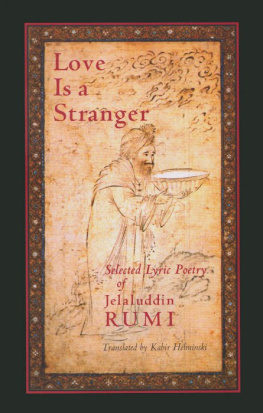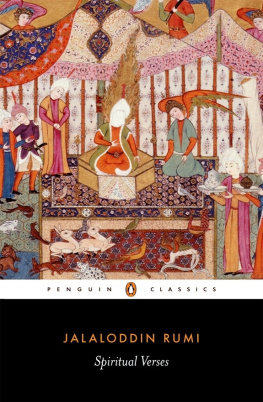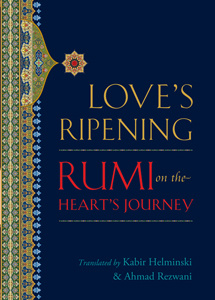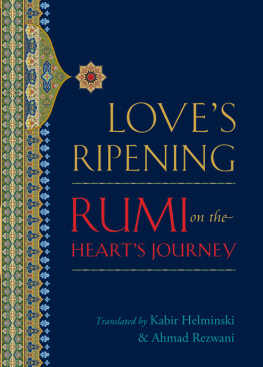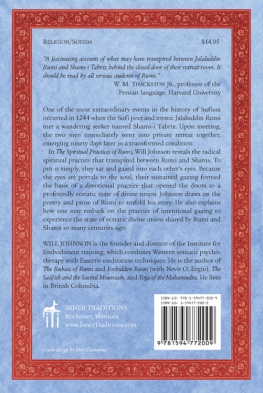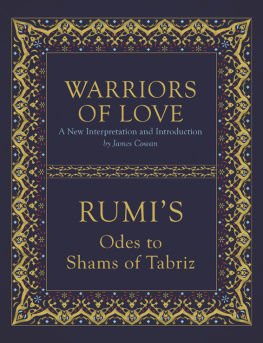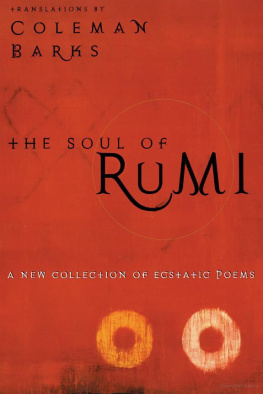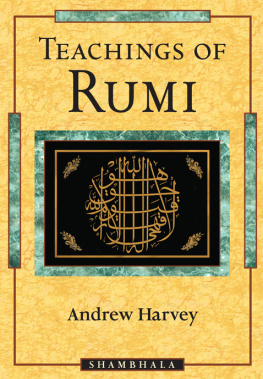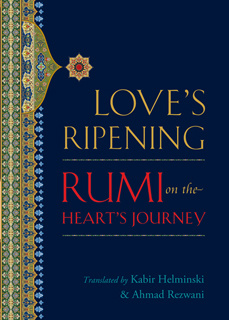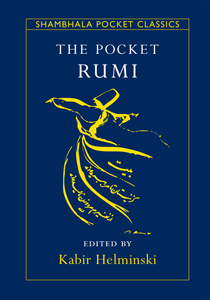Mevlana Jalaluddin Rumi - Love is a Stranger
Here you can read online Mevlana Jalaluddin Rumi - Love is a Stranger full text of the book (entire story) in english for free. Download pdf and epub, get meaning, cover and reviews about this ebook. publisher: Shambhala, genre: Art. Description of the work, (preface) as well as reviews are available. Best literature library LitArk.com created for fans of good reading and offers a wide selection of genres:
Romance novel
Science fiction
Adventure
Detective
Science
History
Home and family
Prose
Art
Politics
Computer
Non-fiction
Religion
Business
Children
Humor
Choose a favorite category and find really read worthwhile books. Enjoy immersion in the world of imagination, feel the emotions of the characters or learn something new for yourself, make an fascinating discovery.
- Book:Love is a Stranger
- Author:
- Publisher:Shambhala
- Genre:
- Rating:4 / 5
- Favourites:Add to favourites
- Your mark:
- 80
- 1
- 2
- 3
- 4
- 5
Love is a Stranger: summary, description and annotation
We offer to read an annotation, description, summary or preface (depends on what the author of the book "Love is a Stranger" wrote himself). If you haven't found the necessary information about the book — write in the comments, we will try to find it.
Love is a Stranger — read online for free the complete book (whole text) full work
Below is the text of the book, divided by pages. System saving the place of the last page read, allows you to conveniently read the book "Love is a Stranger" online for free, without having to search again every time where you left off. Put a bookmark, and you can go to the page where you finished reading at any time.
Font size:
Interval:
Bookmark:

 SHAMBHALA Boston & London 2011 SHAMBHALA PUBLICATIONS, INC. Horticultural Hall 300 Massachusetts Avenue Boston, Massachusetts 02115 www.shambhala.com 1993 by Kabir Edmund Helminski Published by arrangement with Threshold Books All rights reserved. No part of this book may be reproduced in any form or by any means, electronic or mechanical, including photocopying, recording, or by any information storage and retrieval system, without permission in writing from the publisher. Library of Congress Cataloging-in-Publication Data Jalal al-Din Rumi, Maulana, 12071273 [Selections. English. p. cm. eISBN 978-0-8348-2475-1 ISBN 978-1-57062-527-5 (pbk.) I. eISBN 978-0-8348-2475-1 ISBN 978-1-57062-527-5 (pbk.) I.
SHAMBHALA Boston & London 2011 SHAMBHALA PUBLICATIONS, INC. Horticultural Hall 300 Massachusetts Avenue Boston, Massachusetts 02115 www.shambhala.com 1993 by Kabir Edmund Helminski Published by arrangement with Threshold Books All rights reserved. No part of this book may be reproduced in any form or by any means, electronic or mechanical, including photocopying, recording, or by any information storage and retrieval system, without permission in writing from the publisher. Library of Congress Cataloging-in-Publication Data Jalal al-Din Rumi, Maulana, 12071273 [Selections. English. p. cm. eISBN 978-0-8348-2475-1 ISBN 978-1-57062-527-5 (pbk.) I. eISBN 978-0-8348-2475-1 ISBN 978-1-57062-527-5 (pbk.) I. Sufi poetry, PersianTranslations into English. I. Helminski, Kabir Edmund 1947 II. Title. PK6480. E5 L68 2000 89I.55IIdc2I 99-049893
M ore than fourteen years have passed since I began to translate some of Rms poetry.I could not have imagined where this path was taking me. What at first seemed a distant and exotic city in the distance, whose outline and features I was just beginning to differentiate, this city of Sufi verse, is now a more familiar place whose streets and alleys, whose grand architecture and precious details, I no longer view from afar but sense and feel as someone beginning to feel at home in a place. This world is as real and present to me as the outer world I live in, but even more so, for it is a world of meanings and not just things. Western culture has no convenient category for Mevlna Jelluddin Rm. In the Islamic world he is held in the highest esteem not only as a literary figure, but as a saint whose personal example inspired the founding of a major religious order, and as a philosopher whose elaboration of the cosmic sense of Love has had a significant cultural impact. His literary genius is made clear in the 30,000 verses of impassioned lyric poetry in his Divn-i Shamsi Tabriz and in the 22,000 verses of his masterwork, the Mathnw, a vast tapestry into which has been woven Aesopian fables, scenes from the everyday life of his times, Quranic revelation, and Neoplatonic metaphysics.
The great poet Abdur Rahmn Jmi called the Mathnw the Quran in the Persian tongue. Sadi, another major poet, once selected an ode of Mevlnas for presentation to the Moghul Khan as the best poem in the Persian language. In the West, Rms influence has been felt by Chaucer, Goethe, and Emerson, to name a few; and no less a critic than Doctor Johnson has said of him: He makes plain to the Pilgrim the secrets of the Way of Unity, and unveils the Mysteries of the Path of Eternal Truth. To many already familiar with his life and writings, Mevlna Jelluddin Rm is something more than a poet. He might be considered an example of insni kmil, the perfected or completed human being in whom the divine attributes are embodied. A figure of almost prophetic dimensions, he became for some Muslims almost a second Muhammad, for Christians a second Christ, and for Jews a second Moses.
Among those present at his funeral procession were people of different religious traditions, each of whom claimed that Jelluddin had brought him to a deeper understanding of his own faith. Rms work can be considered a synthesis of all that Islamic culture had assimilated from Arab, Hellenistic, Hermetic, Christian, Jewish, Persian, and Indian sources in the first seven hundred years of its existence. With complete respect for the prophets of the Judaeo-Christian-Islamic tradition and with uncommon beauty and insight, he elucidated the mythic inheritance, the shared traditions of his age; yet he was somehow beyond his own culture and time. Although following the details of the Islamic faith, Rm expounded a religion of Love. Without denying his own Islamic faith he was able to say, The religion of Love is like no other, and Gambling yourself away is beyond any religion. For the Sufis, the gnostics of Islam, Love has always been a central theme.
In Persia especially, the metaphor of Love, Lover, and Beloved was developed so vividly that its metaphoric significance was sometimes mistaken for wanton sensuality. The Andalusian philosopher-saint, Ibn Arabi, authored some of the most beautiful love poetry in the Arabic language at the same time that he developed one of the most comprehensive systems of metaphysics ever known. When compelled to defend his poetry against orthodox detractors, he was more than able to demonstrate that the language of love was an appropriate analog for spiritual realities. For Rm, especially, Love was the very cause of existence, the hand behind the puppets, the Grand Artificer. When in middle age he met the vagabond saint, Shamsi Tabriz, Mevlna said, The God which I have worshipped all my life appeared to me today in human form. This statement, however, should not be understood as the complete identification of the human and the divine.
From the Islamic point of view no human being, not even the Prophet, could be identified with God. Nevertheless, for the Sufi mystic the phenomenal world is a bridge to the Real, and both Mevlna and Shams found in each other the most perfect example of the Friend. In each others presence they were able to experience the unity of Love, Lover, and Beloved. The meeting of Shams and Mevlna was like the conjunction of two great planets. They retired into a solitude which became legendary; but as in the conjunction of the sun and moon, the apparent darkness of eclipse was objectionable to some of Mevlnas former students. Jealousy arose and Shams departed suddenly, leaving Mevlna without the spiritual intimacy which they had enjoyed.
Perhaps it was necessary that he experience the pain of separation in order to reach his own perfection. After some years Shams would return and meet his death at the hands of assassins, but not before Rm was completely transformed by his ardent love. Mevlna would continue to discover the Friend in various guises through the rest of his life. After Shams it was Salhuddin, a goldsmith who became a disciple, that Jell would extol for his incomparable sanctity, and after Salhuddins death, Husamuddin, the recorder of the Mathnwi. Characteristic of Rmis spirituality is the recognition of the Beloved or Friend in human form, not as the worship of personality, but as a recognition of the spiritual gifts the One continually bestows on His creatures. For Rm, as for many who have followed his way through the centuries, friendship and love are essential values. In the Menqibu alArifin, Ahmed al-Aflk a disciple of the grandson of Rm, relates the following story on the subject of humility and respect: Jell spoke a parable from the trees of the field: Every tree that yields no fruit, as the pine, the cypress, the box, etc., grows tall and straight, lifting its head up high, and sending all its branches upward; whereas all the fruit bearing trees droop their heads, and trail their branches ...
In like manner, Jell also had the commendable habit to show himself humble and considerate to all, even the lowest; especially so to children and old women. He used to bless them, and always bowed to them, even though these were not Muslims. Once he chanced upon a number of children who were playing, and who left their game, ran to him, and bowed, Jell bowed to them also; so much so, that one little fellow called out from afar: Wait for me until I come. Jell did not move away, until the child had come, bowed, and been bowed to.At that time people were speaking and writing against him. Legal opinions were obtained and circulated, to the effect that music, singing, and dancing, are unlawful. Out of his kindly disposition and love of peace, Jell made no reply: and after a while all his detractors were silenced, and their writings clean forgotten, as though they had never been written; whereas, his family and followers will endure to the end of time, and will go on increasing continually.
Next pageFont size:
Interval:
Bookmark:
Similar books «Love is a Stranger»
Look at similar books to Love is a Stranger. We have selected literature similar in name and meaning in the hope of providing readers with more options to find new, interesting, not yet read works.
Discussion, reviews of the book Love is a Stranger and just readers' own opinions. Leave your comments, write what you think about the work, its meaning or the main characters. Specify what exactly you liked and what you didn't like, and why you think so.

